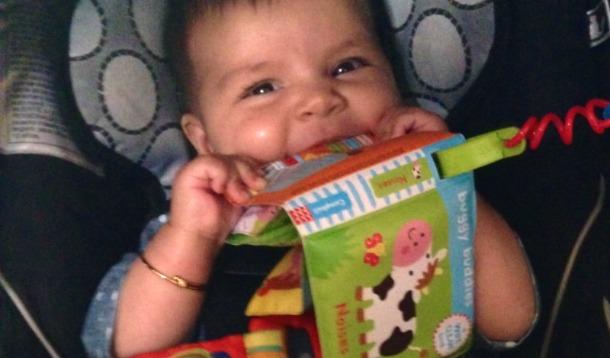
The importance of literacy is touted everywhere. The more literate a nation, the better they fare in the world market. International studies show that a positive attitude toward reading impacts student success in all subjects, and is a high predictor of future success. The American Academy of Pediatrics recommends reading aloud to children from birth, and doing so daily.
So, in order to give your kids an advantage in this competitive world and to allow them to truly reap the rewards of early literacy, you should get them reading as soon as possible, right? Nope! Forcing reading instruction too soon may actually have a harmful effect on your child’s literacy development.
The age for “learning to read” varies around the world. Currently, the USA is pushing kids as young as kindergarten and even preschool to master the sounds of the letters and to memorize sight words. In Finland, a country that consistently tops the world rankings for education, similar reading instruction may begin as late as eight years-old.
Here’s the thing, informal reading instruction, of course, begins at birth. To become a good reader, a child needs to see print around them, a child needs to develop a good understanding of oral language and a child needs hours and hours and hours of play. Yes, play.
Before a student is ready to make sense of words on a page and stories in a book, they need to orient themselves in the world. Through play, kids develop the knowledge base they need to launch their academic career. Before a child sounds out the letters that spell s-o-u-r, their brains need to know what sour is. And to do that, they need to taste lots of sweet, tangy, bland, salty and bitter things for their tongues and brains to understand where sour fits into the continuum.
Kids need to experience up versus down, freezing versus mild, smooth or slippery or bumpy. They need to learn through climbing and digging and spinning in a circle until the world tilts around them. I’m not saying a child can not make sense of a word if they haven’t experienced it themselves - I have an academic understanding of a blowfish, although I’ve never met one. What I am saying is a child needs a wealth of interactive experiences with the natural world around them, with their own bodies and what they can do, with the endless games their minds come up with, long before they can get what they need to out of decoding words.
I’m a fan of Ontario’s play-based kindergarten. Sure, I see some of the pitfalls and I recognize that the program is not being administered consistently across schools, but the theory is sound. Let kids explore the world. Give them time to experience things. Let them wonder at the difference between wet packing snow and the frigid snow that crunches beneath their feet. A four or five year-old learns much more from watching an ant climb the rough bark of a tree than from memorizing letter sounds.
Having said that, I do think it is vital to surround kids with letters, written words, and a ton of books. For me, the key is creating joy in relation to reading. Flashcards with carefully printed sight words are not going to instill a love of literature. Creating a competitive culture around reading - who is “top of the class,” who reads at what level, who will get there first - also flies in the face of kids taking pleasure in literacy.
There are some kids ready to read at four years-old, just as there are some kids ready to toilet train early or walk early — but I think the educational system, and parents, would do well to recognize the great range in when kids are naturally ready to acquire a skill and chose a low-pressure approach.
Reading to little ones? Awesome! Visits to the library and a house full of books? Amazing! Endless hours of creative play? Incredible! Flashcards, worksheets and pressure to read before their time? Nope! Won’t do your child any favours and can lead to future difficulties in school.
Trying to raise a reader? Start by letting them be kids.